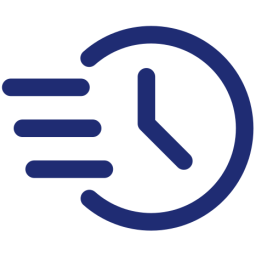How to run one-time cronjobs
The best use case for one-time cronjobs (cronjobs that run once at a specific time) is scheduling a task once at a specific time and it won’t recur ever again. For example, I schedule an email blast to notify new IP addresses before they’re in use.
For other use cases, there are some better ways:
- If you’d like to process one item at a time, instead of creating a one-time cronjob with the item data, you should store those items (with their scheduled times if necessary) in your database, and set a cronjob every few seconds or minutes to retrieve and process those items.
- If you’d like to process a multi-step cronjob, instead of creating a one-time cronjob with the next step data, you should redirect to the new URL. FastCron will follow the HTTP redirection.
If you still need to create/run one-time cronjobs, follow the instructions below.
Create one-time cronjobs manually
- Click new Cron Job
- Enter the URL to your cron script.
- Click the Expression button next to When to call
- Enter the time into the Expression field, e.g. Feb 14, 2030, 7:30
- Click Save changes.
And that’s it. You can hover/click on the time pattern field e.g. Feb 14, 2030, 7:30 in the example above, and it’ll show the next execution time so you can confirm the time settings are correct.
Run one-time cronjobs using API
To programmatically run one-time cronjobs, you can create a cronjob (with When to call: Manual),
then schedule to run it at a specific time using
cron_run.
curl -X POST "https://app.fastcron.com/api/v1/cron_run" \ -H 'Content-Type: application/json' \ -d '{ "token": "YOUR_API_TOKEN", "id": CRONJOB_ID, "time": 1905821065 }'The command above will run your cronjob at Friday, May 24, 2030 2:44:25.
You can also attach a payload to the execution time like this:
curl -X POST "https://app.fastcron.com/api/v1/cron_run" \ -H 'Content-Type: application/json' \ -d '{ "token": "YOUR_API_TOKEN", "id": CRONJOB_ID, "time": 1905821065, "payload": "test=value&name=value2" }'The command above will run your cronjob at Friday, May 24, 2030 2:44:25 with the payload test=value&name=value2.
